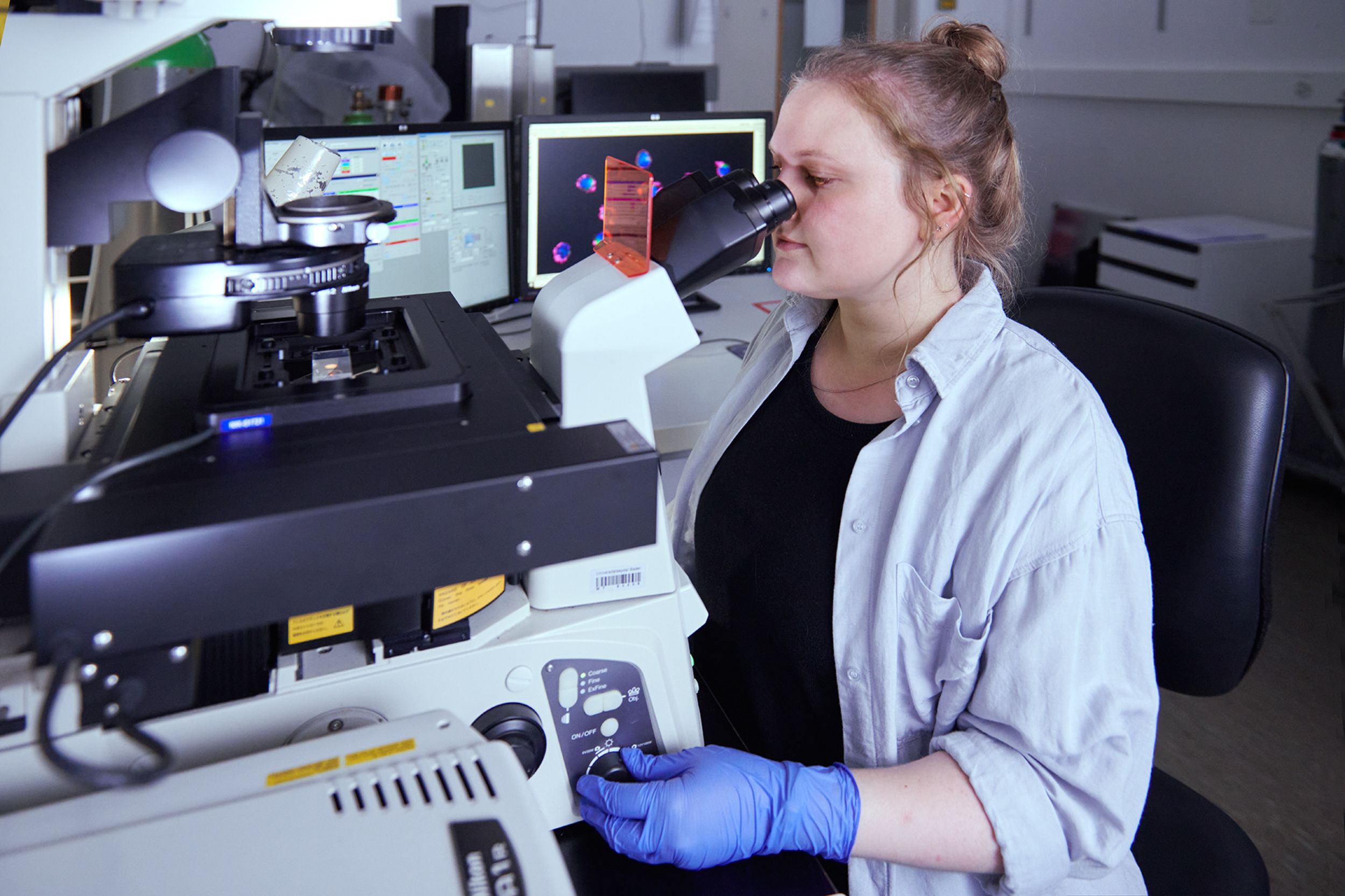
Research
Main research areas
The doctors at the University Center for Immunology (UZI) are all actively involved in research. Through clinical research, we try to better understand the diseases of our patients and thus improve diagnosis and treatment. In the UZI laboratories, we study the biology of various diseases. The expertise of the various laboratories allows us to take unusual paths in joint projects in order to better understand rare diseases in patient-specific individual examinations.
Prof. Christoph Hess - Immunobiology
Metabolism of immune cells (immunometabolism)
Prof. Hess' research group is concerned with the regulation of immune cell-intrinsic metabolism on the one hand and with the systemic interaction/cooperation of metabolism and immunology on the other. Understanding immunology and metabolism in an integrated way can provide the basis for developing or improving immunological therapies for cancer or vaccinations. In addition to his laboratory at the Department of Biomedicine at the University of Basel, Christoph Hess also heads a research group at the University of Cambridge in England.
https://biomedizin.unibas.ch/en/research/research-groups/hess-lab/
https://www.citiid.cam.ac.uk/christoph-hess/
Link publication list: https: //pubmed.ncbi.nlm.nih.gov/?term=hess-christoph&sort=date
Prof. Mike Recher - Immunodeficiency
Autoimmunity and susceptibility to infection in primary immunodeficiencies (PID)
Professor Recher and his team are investigating the mechanisms that lead to increased - and sometimes life-threatening - infections or autoimmune diseases in patients with congenital disorders of the immune system. The detailed characterization of the immune system and the "immune genes" of affected patients can improve the diagnosis and treatment of these diseases.
https://biomedizin.unibas.ch/en/research/research-groups/recher-lab/
Link to the list of publications: https: //pubmed.ncbi.nlm.nih.gov/?term=recher-mike&sort=date
Prof. Christoph Berger - Translational Immunology
What are good and bad immune responses: from vaccine failures and autoimmune diseases
The research of the Translational Immunology Lab of PD Dr. Berger is dedicated to immune responses to vaccinations. On the one hand, the research group investigates factors that improve vaccination responses and on the other hand, it tries to understand how side effects to vaccinations can occur. As a second focus, the research team is investigating patients suffering from an autoimmune disease of the blood vessels (vasculitis). In particular, the aim is to find out what exactly the immune system is directed against in autoimmune diseases.
https://biomedizin.unibas.ch/en/research/research-groups/berger-lab/
Link to the list of publications:https://pubmed.ncbi.nlm.nih.gov/?term=berger-ct&sort=date
Prof. Thomas Daikeler - Vasculitis
Inflammatory rheumatologic diseases of the joints and blood vessels
The research of Prof. Daikeler and his team aims to improve the diagnosis and treatment of patients with inflammatory rheumatological diseases. He is particularly interested in vasculitis - an autoimmune disease of the blood vessels - and gout. Thomas Daikeler is one of the co-founders of the Swiss Giant Cell Arteritis and PMR Cohort.
Prof. Marten Trendelenburg - Clinical Immunology
Disease mechanisms in systemic autoimmunity
The research activities of the "Clinical Immunology" research group focus on the investigation of pathomechanisms of systemic autoimmunity, in particular the role of complement and autoantibodies against complement. It also investigates the role of complement deficiencies in various diseases. The projects operate at the interface between the clinic and the laboratory and attempt to incorporate specific clinical questions into experimental research on the one hand and to transfer findings from the laboratory to everyday clinical practice on the other.
Links to the research group:
https://biomedizin.unibas.ch/en/research/research-groups/trendelenburg-lab/
https://dkf.unibas.ch/de/forschungsgruppen/forschungschwerpunkte/immunologie-infektiologie/forschungsgruppe-trendelenburg-m/
Prof. Karin Hartmann - Allergy and immunity
The aim of Prof. Hartmann's team's research is to provide optimal care for patients with mast cell-associated diseases such as mastocytosis, urticaria and atopic dermatitis. Mast cells are important defense cells in allergies and regulate immunological processes in inflammatory diseases, autoimmune diseases and cancer. In mastocytosis, mast cells are increased and altered. This leads to severe allergic attacks and can cause various other symptoms. Prof. Hartmann's research contributes to a better understanding of the pathogenesis of mastocytosis in order to develop new diagnostic and therapeutic options for mast cell diseases.
Prof. Jan Niess - Gastroenterology
Prof. Niess and his team are researching how chronic inflammatory bowel diseases and eosinophilic esophagitis develop. To this end, clinical questions are explained using experimental approaches. In addition to laboratory research, we participate in multicenter studies in order to be able to offer the latest therapies.
Biomedicine Research Group
Research Group Department of Clinical Research
Publication list
